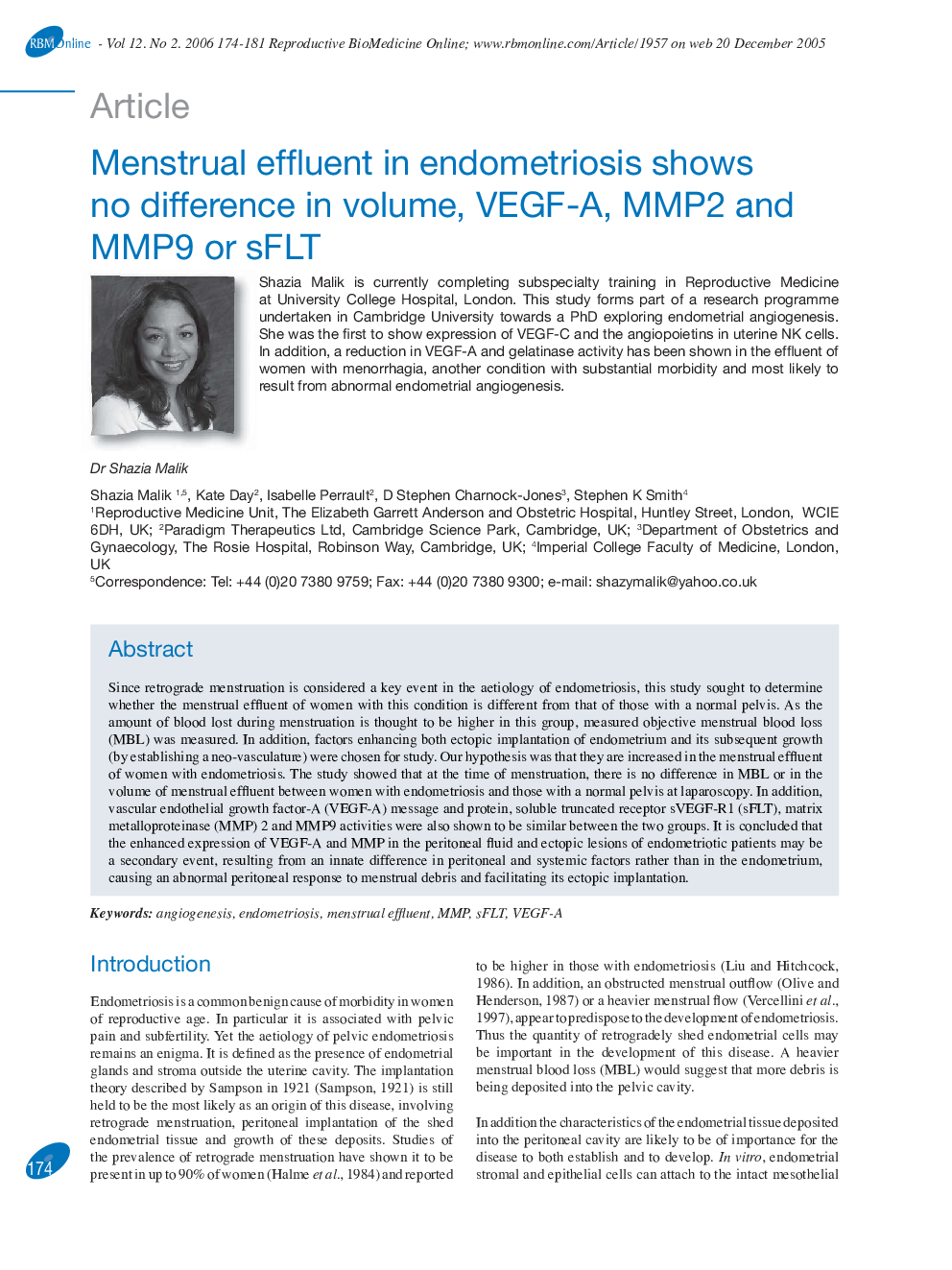| Article ID | Journal | Published Year | Pages | File Type |
|---|---|---|---|---|
| 3973647 | Reproductive BioMedicine Online | 2006 | 8 Pages |
Since retrograde menstruation is considered a key event in the aetiology of endometriosis, this study sought to determine whether the menstrual effluent of women with this condition is different from that of those with a normal pelvis. As the amount of blood lost during menstruation is thought to be higher in this group, measured objective menstrual blood loss (MBL) was measured. In addition, factors enhancing both ectopic implantation of endometrium and its subsequent growth (by establishing a neo-vasculature) were chosen for study. Our hypothesis was that they are increased in the menstrual effluent of women with endometriosis. The study showed that at the time of menstruation, there is no difference in MBL or in the volume of menstrual effluent between women with endometriosis and those with a normal pelvis at laparoscopy. In addition, vascular endothelial growth factor-A (VEGF-A) message and protein, soluble truncated receptor sVEGF-R1 (sFLT), matrix metalloproteinase (MMP) 2 and MMP9 activities were also shown to be similar between the two groups. It is concluded that the enhanced expression of VEGF-A and MMP in the peritoneal fluid and ectopic lesions of endometriotic patients may be a secondary event, resulting from an innate difference in peritoneal and systemic factors rather than in the endometrium, causing an abnormal peritoneal response to menstrual debris and facilitating its ectopic implantation.
